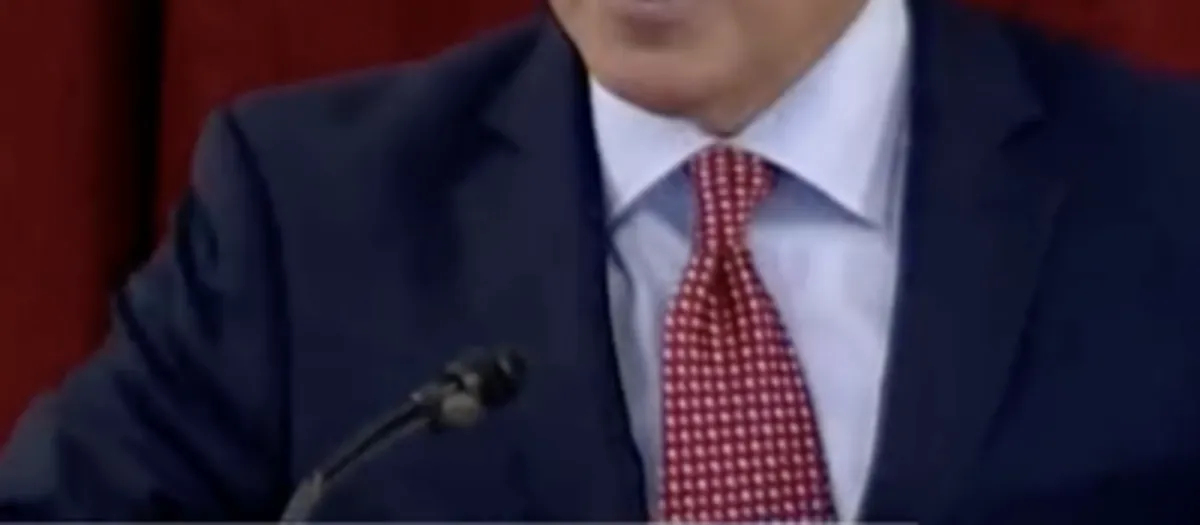
Updated February 24 at 2:07 p.m.
An independent federal oversight agency has determined that at least some of President Trump's mass firings of probationary period employees were unlawful. This decision creates a potential pathway for these employees to regain their jobs. The Office of Special Counsel (OSC), tasked with investigating illegal actions against federal employees, issued its decision regarding six employees across different agencies. While the decision's scope is technically limited, it could have an immediate impact on all terminated staff within those six agencies and set a far-reaching precedent across the government. The decision, not publicly released, was provided to Government Executive by a government source. OSC verified its authenticity.
OSC has forwarded the case to the quasi-judicial Merit Systems Protection Board (MSPB) for enforcement of its findings, requesting a 45-day stay on the firing decisions. This period will be used to further investigate the dismissals and determine the most effective way to address the consequences of these apparent unlawful actions. MSPB has three business days to issue a decision on the stay request; if it does not act by the deadline, the stay will be enacted. Henry Kerner is believed to have recused himself from the case, as he previously led OSC.
Before the stay expires, OSC can request corrective action from the employees’ agencies, likely seeking their reinstatement with back pay. If agencies refuse this request, OSC can initiate corrective action litigation before MSPB. OSC may also pursue disciplinary action against those responsible for the unlawful personnel actions.
Special Counsel Hampton Dellinger, leading OSC, identified differing violations for the complainants. For some, the government violated federal statutes governing probationary period terminations. For others, the Trump administration was found to have essentially issued layoffs without following proper reduction-in-force (RIF) procedures. The OSC emphasized its role in safeguarding the merit system by seeking a stay due to probationary terminations that appeared inconsistent with federal personnel laws.
Earlier this month, the Trump administration began firing thousands of federal employees in their probationary periods, typically those hired within the past one to two years, depending on their hiring mechanism. These workers have weaker civil service protections. In some instances, long-time government employees recently hired or promoted were also included, though the legal rationale for their quick dismissal is less clear. The firings, ongoing, are expected to surpass 25,000 this week.
The agencies involved in the current OSC case include the Departments of Veterans Affairs, Housing and Urban Development, Education, Energy, Agriculture, and the Office of Personnel Management. Following the publication of this story, OSC released a statement confirming its findings and suggesting that Dellinger is considering expanding them to encompass more federal workers.
By law, agencies must terminate employees in their probationary periods due to demonstrated unfitness for federal employment, based on performance or conduct. However, OSC found that mass firings were executed without specifying individual performance or conduct issues. In some cases, performance or conduct was not cited at all. Agencies’ termination notices used similar language without providing detailed or individualized assessments.
OSC's investigation revealed that complainants had no history of poor performance or conduct and had received exemplary evaluations. Public statements from agencies indicated that the terminations aimed to achieve reorganizations and cost savings, akin to a RIF.
Improperly firing employees denies them pay, benefits, potential tenure accrual, and due process rights. Some employees with high performance marks would not necessarily lose their jobs under a RIF. The requirement to assess each employee's specific fitness ensures that outstanding employees are not arbitrarily lost and that terminations align with merit system principles.
The employees’ cases were brought to OSC by Democracy Forward and Alden Law Group. They sought to have the case heard as a class action, a possibility still under MSPB consideration. If MSPB grants the stay request, it could immediately apply to all fired employees at the six named agencies.
Democracy Forward President Skye Perryman stated that the mass termination of federal workers was unlawful and accused the Trump administration of inflicting chaos and suffering. The group urged MSPB to act swiftly to reinstate the employees. Rob Shriver, former Acting OPM director, emphasized the importance of reviewing employee performance before dismissals, highlighting the value these workers bring.
The White House and OPM did not immediately respond to requests for comment.